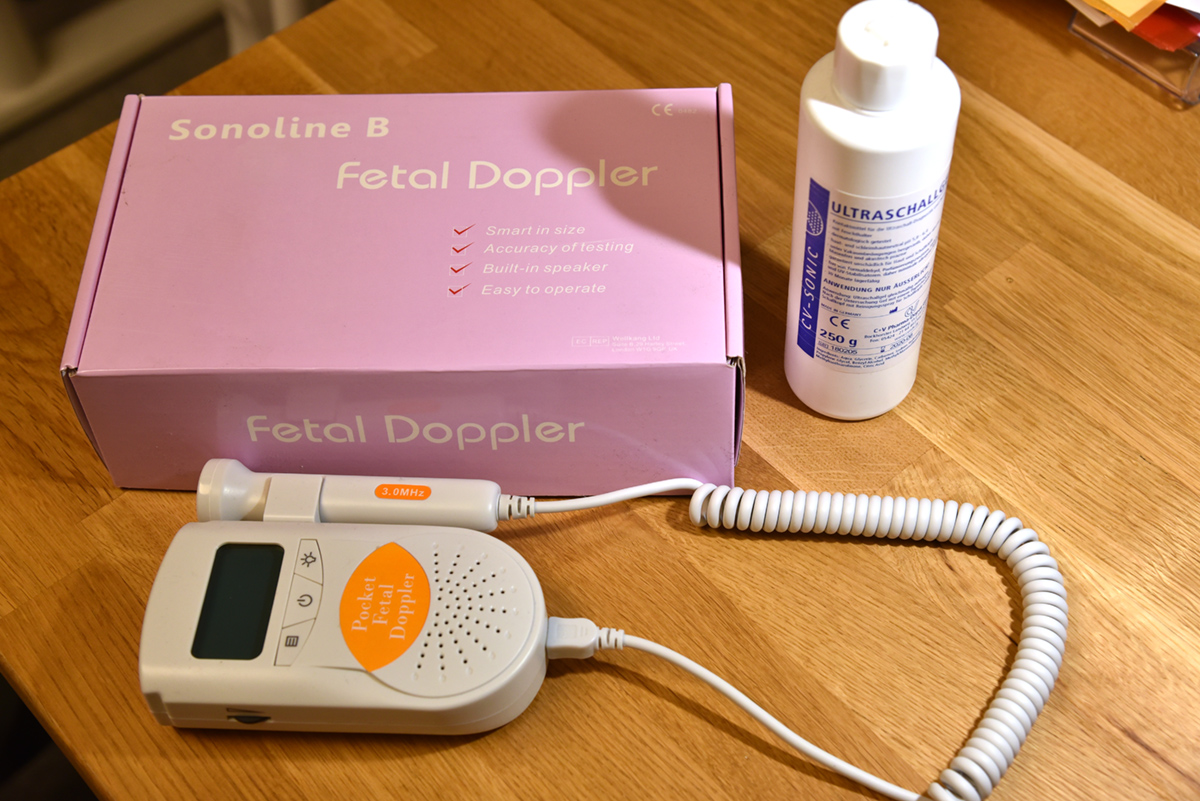
When using the fetal doppler device, there may be a problem in distinguishing the heartbeat of a baby and an adult. But there is a very simple way in which you can eliminate this problem and it is by counting the heart beats of a baby with the use of a doppler. The heart beats of a mother and a baby are different. While mother’s heart beats are in the range from 60 to 100 BPM, baby's heart beat goes from 120 to 180 BPM. Remember that there are always variations of heart beat among adults and babies as well. There are fetal dopplers like the sonotrax fetal doppler, which do not have a display but the counting of the heart beats can be done just by listening to the heart beats. This counting needs to be done for 15 or 10 seconds and the number you have counted is then multiplied by 4 or 6. If you do this, you will get a number of beat per minute, or BPM. For example, if you have counted heart beats for 15 seconds, you should multiply the number with 4, or 6 if you have counted for 10 seconds. In both cases, you will get a result of 60 seconds. If you use sonotrax basic model or any other model with a display, you can see BPM on a display. The BPM of a baby can be affected by the movement of the baby so do not be confused by the different baby's BPM. Normal range is considered to be from 120 to 180 BPM, but there are factors that influence this number, like pregnancy. The BPM of a baby will become more static as the baby progresses.
Do We Need a Fetal Doppler?
With the use of fetal doppler you can monitor the heart rate and condition of the fetus. The fetal heart beat or FHR can also be monitored. You can do this after eight weeks of pregnancy if you use a fetal Doppler with a probe of 3MHz. By using these devices, you can even prevent problems like miscarriage due to the fetus heart beat monitoring. Only 1% of women who use these devices suffer from a miscarriage, but in the past, this number was 15%. You can monitor the development of your baby and see if and when the problem arises.
You need to be calm since the stress can affect the BPM and even increase the risks associated with low-birth infants. It can even badly influence the child’s grown up life and lead to withdrawal behavior.
Gender
There are some tales that boy's hearts are bigger and thus cause faster heart beats but this is not true. There is no way the fetal doppler can tell you the gender of the baby, so you will have to wait for the birth, which will surely give you the answer.

















Your thoughts on this
Loading...